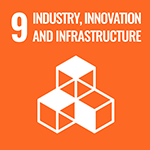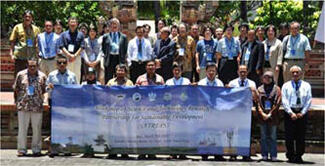Climate Variability Study and Societal Application through Indonesia - Japan "Maritime Continent COE" - Radar-Buoy Network Optimization for Rainfall Prediction
Environment / Energy (Climate Change)
 Republic of Indonesia
Republic of Indonesia
Principal Investigator
ODA Recipient Country
Republic of Indonesia
Research Institutions in Japan
Japan Agency for Marine-Earth Science and Technology (JAMSTEC) / Kyoto University / Kobe University
Research Institutions in Counterpart Country
Agency for the Assessment and Application of Technology (BPPT) / Agency for Meteorology, Climatology and Geophysics (BMKG) / National Institute of Aeronautics and Space (LAPAN)
Adoption fiscal year
FY 2009
Research Period
5 Years
Overview of the Research Project
Diagnosis of the heart of global atmospheric circulation - seas and rains of Indonesian "maritime continent"
The Indonesian Archipelago controls warm water flowing from the Pacific Ocean towards the Indian Ocean, generating the most active clouds on the earth, which act as the "heart" pumping global atmospheric circulation. Enhancing capacity to make a "diagnosis" of this heart - the seas and rains of Indonesia - makes it possible to improve the accuracy of climate predictions for the whole world. For Indonesia, the improvements of observation and prediction also contribute to mitigating flooding and drought damage and to policymaking in order to achieve climate-adapted social infrastructure and industrial development.
Optimizing land- and sea-based observations to address global climate change, protecting both Japanese and Indonesian people
This project has created an observation network for climate on both land and sea, including radar monitoring of rainclouds and development of buoys for measuring marine climate and seawater temperature, as well as transferring technology to Indonesia. Optimizing the observation network over the Indonesian maritime continent, which holds the key to understanding and predicting fluctuations in global climate, is contributing to the safety of the Indonesian people and of around a quarter of a million Japanese tourists and businessmen in Indonesia, by for instance, revealing the meteorological causes of the January 2013 Jakarta flood, and is boosting Indonesia's credentials as a leading country in the area of climate variability study.
Photo gallery
Research Project Web site
Press Release
Links
Projects
Contact Us
Japan Science and Technology Agency (JST)
Department of International Affairs
SATREPS Group
TEL : +81-3-5214-8085
Related articles by Category
- Climate Change
Environment / Energy
(Climate Change)
 Federative Republic of Brazil
Federative Republic of Brazil
Health Checkup for the World’s Lungs: Measuring the Carbon Stocks in the Amazon Forests
Carbon Dynamics of Amazonian Forests
- Indonesia
Environment / Energy
(Carbon Neutrality)
 Republic of Indonesia
Republic of Indonesia
Creating a new chemical industry linked to Indonesian agriculture!
Development of Integrated Bio-circular Economy from Food and Energy Estate Waste Fraction to Biofuel and Bio-chemicals
- Asia
Environment / Energy
(Global-scale environmental issues)
 Kingdom of Thailand
Kingdom of Thailand
“Natural rubber seeds”, the unlimited potential hiding in natural rubber plantations
Utilization Technology of Rubber Seeds for Green Products to Mitigate Global Warming and Plastic Pollution
- SDGs : Goal.13
Environment / Energy
(Carbon Neutrality)
 Kingdom of Cambodia
Kingdom of Cambodia
Using water management to reduce methane emissions from rice paddies!
Development and Social Implementation of Greenhouse Gas Emission Reduction Technologies in Paddy Fields of West Tonle Sap Lake by Establishing a Large Paddy Area Water Management System






















